What is outsourcing?
Outsourcing is a way for a business to get some of their goods and services taken care of by another supplier, rather than having members of their team doing the work. Businesses have been outsourcing tasks routinely since the 1970s, but outsourcing got really popular through the 1990s, as companies looked for ways to reduce costs and increase their efficiency.
Although there have been slight dips in the global market for outsourced services through the last decade, it does seem to be bouncing back – in 2019, the market was worth 92.5 billion US dollars, up by almost $7 billion in 2018. Since 2010, the biggest task that is being outsourced is telephone customer service, and IT services. Companies in India can provide these services for a fraction of what it costs to run those services in the west.
Outsourcing statistics
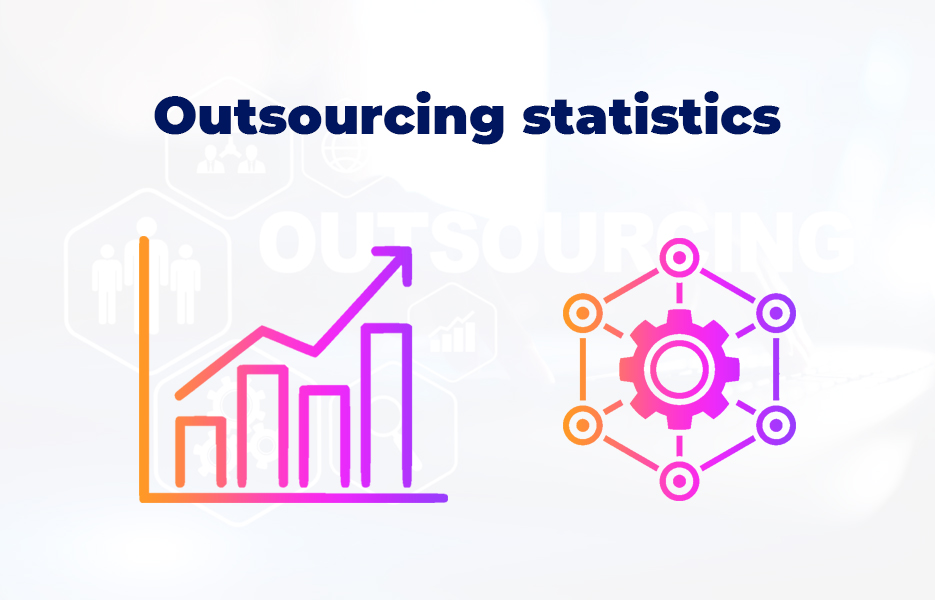
59% of businesses outsource in order to reduce or control costs
The USA is the biggest outsourcer – around 84.2% of outsourcing deals originated in the US
The IT outsourcing industry is worth more than $62 billion
The global market for business process outsourcing is expected to reach $262.2 billion by 2022
89% of companies are not prepared to outsource strategic planning
95% of SMEs have adopted cloud technologies for outsourcing purposes
What can be outsourced?
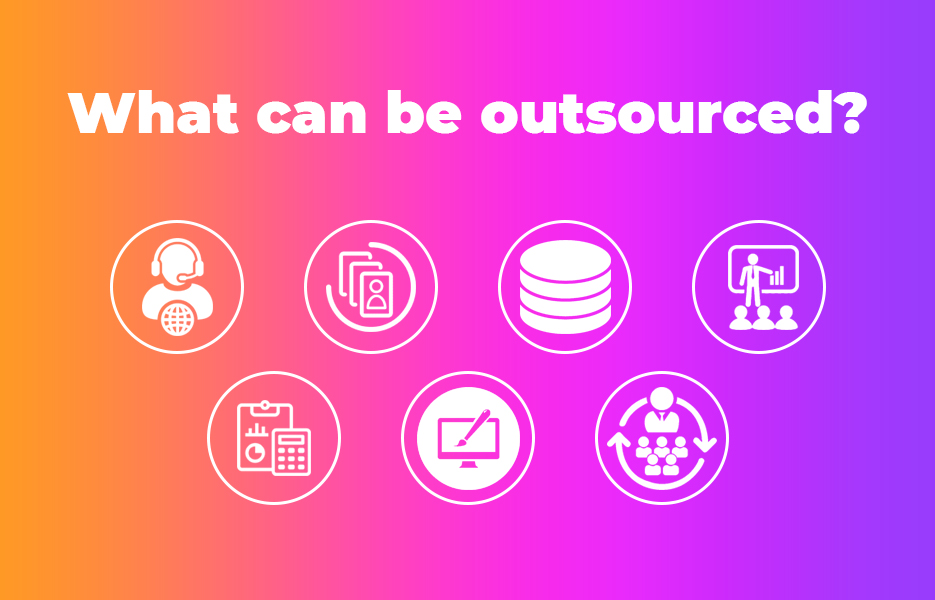
Almost all manufacturing can be outsourced, but it’s not just creating your products that you might want to outsource. Business processes can also be outsourced – it’s especially great for the processes that you don’t have the expertise for, or that are time consuming and you can use that time better. Here’s a few examples of what you might decide to outsource in your business:
- Customer service and support
- Data entry
- Lead generation
- Programming or system development
- Bookkeeping and accounting
- Video content creation
- Social media marketing
- Secretarial work including calendar management
- Payroll processing
- Data storage
- Design work including web design
- Cleaning services
- Event management
- Phone support
- Legal services
- Your eCommerce operations
- Human resources
- Training
- Research and development
- System security
This isn’t a comprehensive list – you can outsource almost any tasks that isn’t in the skillset of your business, that you don’t like doing, or that it doesn’t make sense for you to spend your time on.
When is it right to use outsourcing?
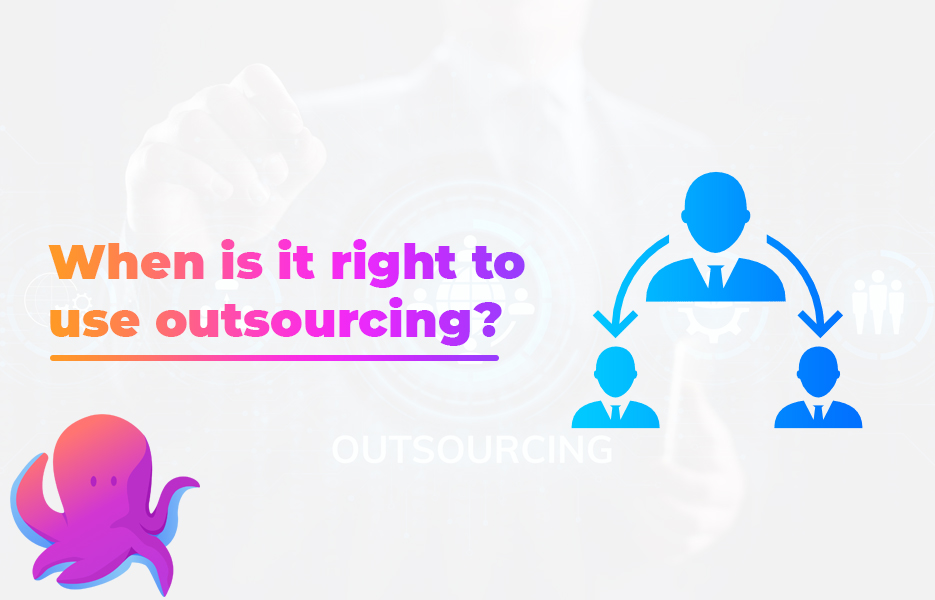
There’s no definitive answer to this question, since outsourcing simply doesn’t suit every single business. Essentially, the right time to outsource a task or process is when it makes sense to – whether that’s for financial reasons, or to simply be more efficient with your time.
Advantages of outsourcing
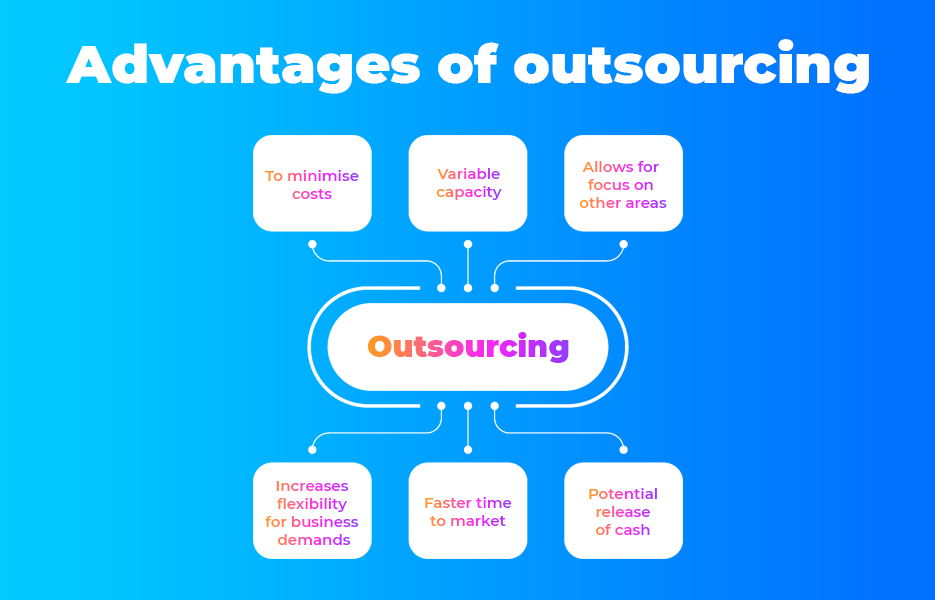
Outsourcing isn’t right in every situation, and for every business, but these are some of the reasons that companies decide to outsource some of their work.
- To minimise costs
- Increases flexibility for business demands
- To increase the efficiency of the task
- Faster time to market
- Variable capacity
- Lower investment required on infrastructure
- Allows for focus on other areas
- Access to innovation and intellectual property
- Gives access to other skills or resources
- Potential release of cash
Challenges of outsourcing
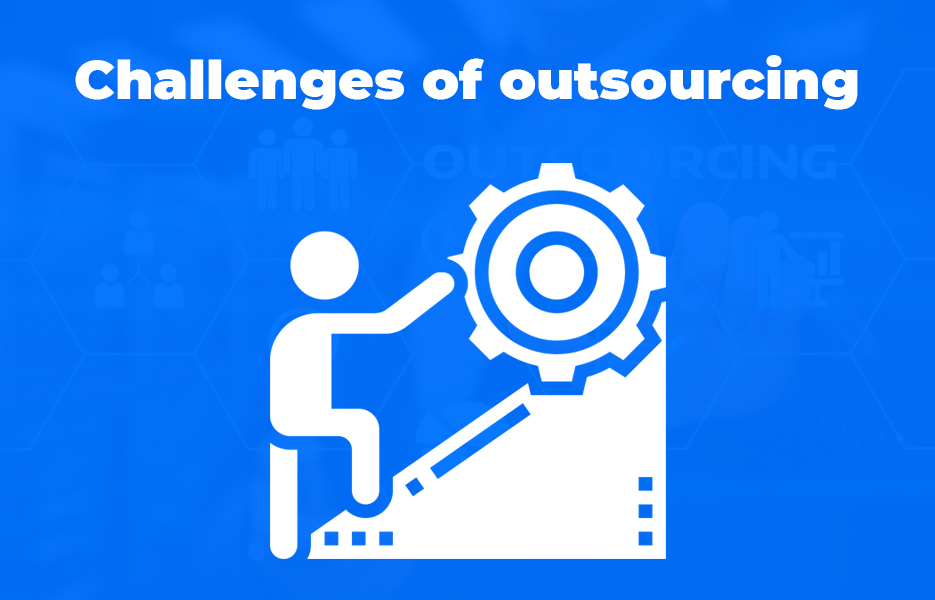
It isn’t always a bed of roses when you decide to outsource tasks. There can be plenty of things that go wrong, and you might find that you end up needing to resolve issues that end up taking more time to sort out than if you’d just done the task yourself! Here are some of the biggest gripes that we know cause problems for businesses when they’re outsourcing.
- Slow turnaround times
- Time zone differences
- Language barriers and miscommunication
- Lack of direct influence on the task
- Lack of business knowledge
- Quality may not be up to standard
If you’re outsourcing your tasks to an individual or another company, if they are unable to complete the work for any reason – such as something happens to their premises, or they end up out of business unexpectedly, you might find yourself with a problem. This has the potential to cause you even bigger problems if the task you’ve outsourced to them is time-sensitive, such as having your tax return in by the deadline. If you’re planning to outsource, it’s a good idea to have a contingency plan for in case of any such problems, then you won’t find yourself panicking to resolve an issue at the last minute.
In addition to this, if you end up outsourcing too much of your more mundane work, you’ll end up with a lot more specialists, rather than generalists on your staff. Although clearly you need your specialists, if you end up without generalists on your team, that could become a problem if you need your team to be more flexible.
What should we consider before outsourcing?
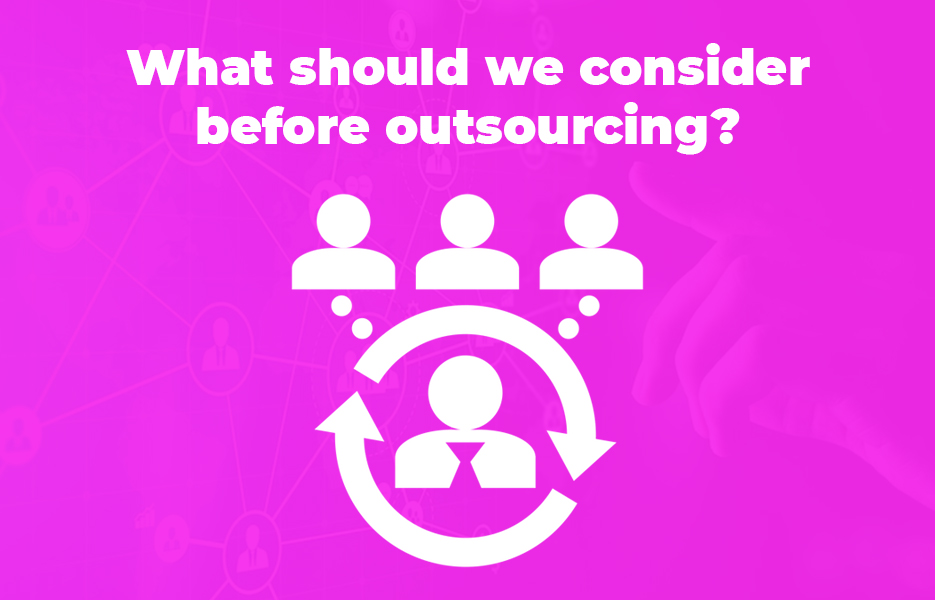
Of course, you need to be sure your decision is the right one for your business in every aspect. But as with all decisions you make, you need to be very aware of how your customers need, and how they might perceive you outsourcing, or offshoring tasks. There has been plenty of backlash against companies that chose to offshore their customer support – because it has resulted in communication issues, especially where offshore call centres are relying on scripts.
When companies have offshored their call centres, customers have complained about the frustrations they’ve felt about those communication issues, and how disrespectful that feels when they are unable to speak to a native speaker of their language from the company they are trying to get support from. You’re essentially showing that you don’t care enough about your customers to pay someone in-country to talk to them. If this is how your customers feel about your offshore call centre, then you might as well not bother with marketing your business – because when your existing customers complain on a review website like Trustpilot or Feefo, all your marketing will be undone. It’s for this reason that many of the major banks brought their call centres back to the UK between 2007 and 2011. There was just too much negative publicity, and those that didn’t use offshore call centres were able to use that to their advantage in their marketing activities.
We’ve taken outsourcing, or offshoring your customer support as an example here, but it’s worth thinking about how any decision like this might impact on your reputation.
Is outsourcing and offshoring the same?
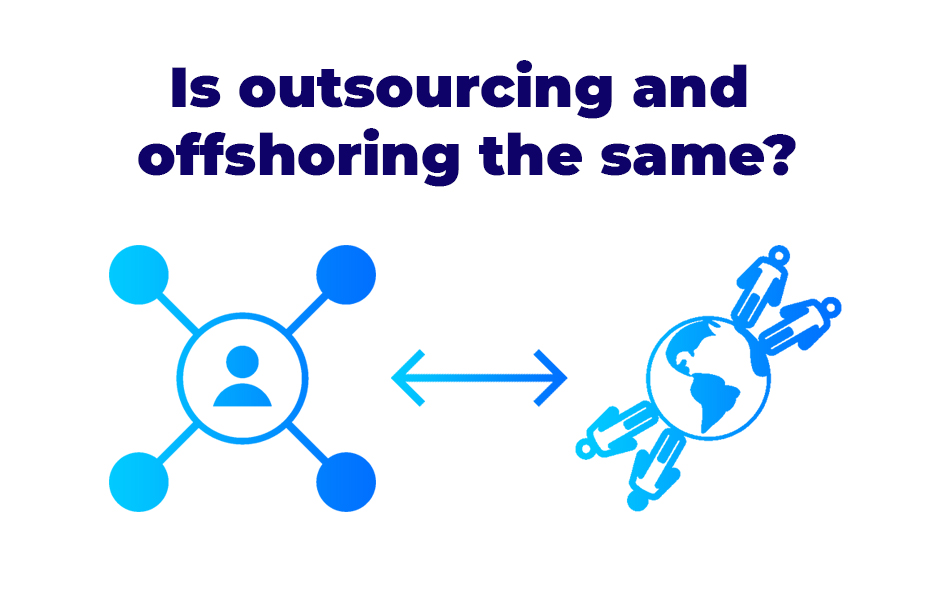
We’ve often seen and heard these two terms being used interchangeably, but they’re not quite the same thing.
Outsourcing mean having work done by a third party – either a business or an organisation.
Offshoring means having work done in a different country, usually in order to save on costs.
Just to make things even more complicated, there is also ‘offshore outsourcing’, which is where a business hires a vendor to do the work overseas, providing a cost advantage. Businesses using offshore outsourcing can also benefit from that vendor’s expertise, economies of scale, and their access to a larger pool of workers.
If we outsource something, can we bring it back in-house?
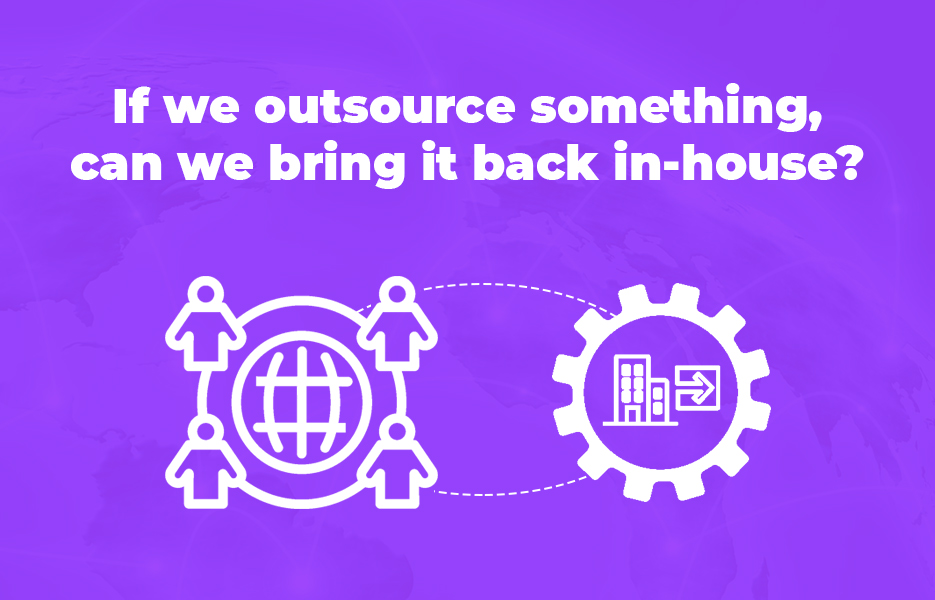
With any decision you make for your business, you may need to revisit whether it’s still the right decision periodically. If it no longer makes sense to outsource a task, or range of tasks – either for financial reasons, or because you’ve recruited a team member that can cover the task as part of their duties, for example – then of course, you’ll need to bring it back in-house.
With that in mind, when you’re outsourcing tasks initially, it’s imperative that when you engage with the business or individual that you’re outsourcing the work to, that you have a clear understanding of how things will work if you want to stop outsourcing. Like with any other business transactions, if you’ve signed a contract, you may need to wait to bring your tasks back in-house, or you may need to pay a penalty for breaking the contract early. Be sure to do your due diligence, and mark your calendar to remind yourself to review the suitability of continuing with the contract at the end of the term to avoid unnecessary costs.
Is outsourcing the same as DropShipping?
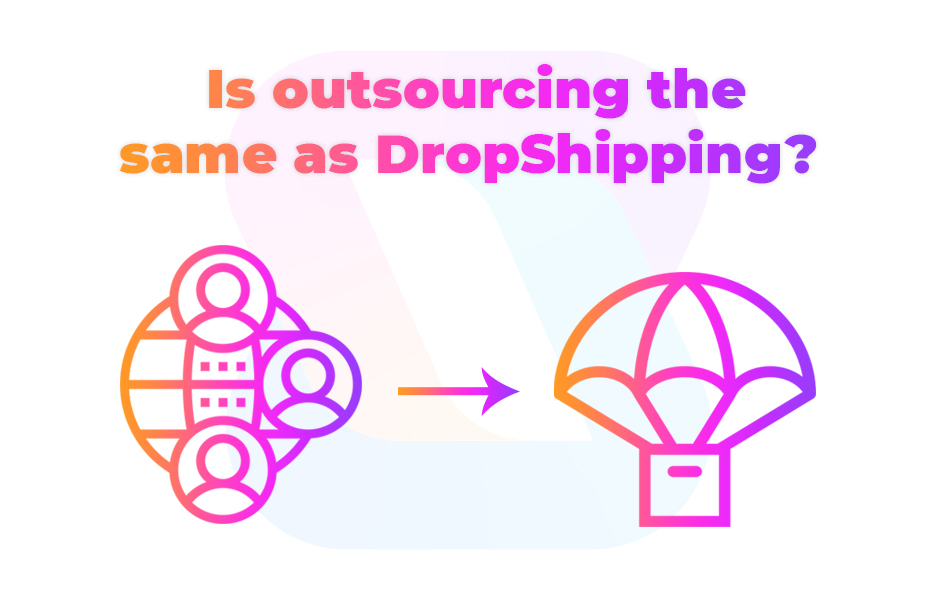
They’re pretty similar in a way. You’re paying for your DropShipping supplier to store, pick, pack and dispatch your customer’s orders for you, so that you are able to concentrate on your marketing and customer service activities.
In retail, there are often businesses that choose to keep their inventory in fulfilment centres. That means, essentially, that they’re outsourcing the storage and shipping aspects of their business, which allows them to lower costs. Those cost savings are on warehouse space, especially if they are dealing with high volumes of large items, or their products change in line with different seasons – and because they’re not having to pay warehouse staff separately. Not only that, by housing some of their inventory in strategically located fulfilment centres, they are able to access lower
There are plenty of reasons that you might decide to outsource a task or process for your business – but each business is different. Whether you’re outsourcing to be able to save on costs, or to gain access to talent that you don’t want to employ a full-timer for, outsourcing can be the way forward. The key, as with all your business decisions, is to ensure that you have carefully assessed the pros and the cons of the opportunity, and you have done your due diligence.
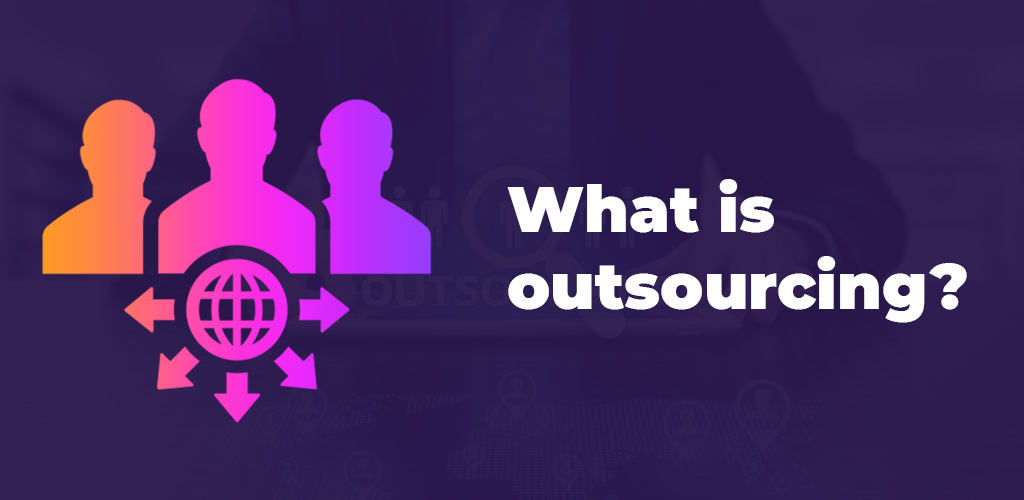

DropShip products from verified suppliers to diversify your inventory and scale your eCommerce business